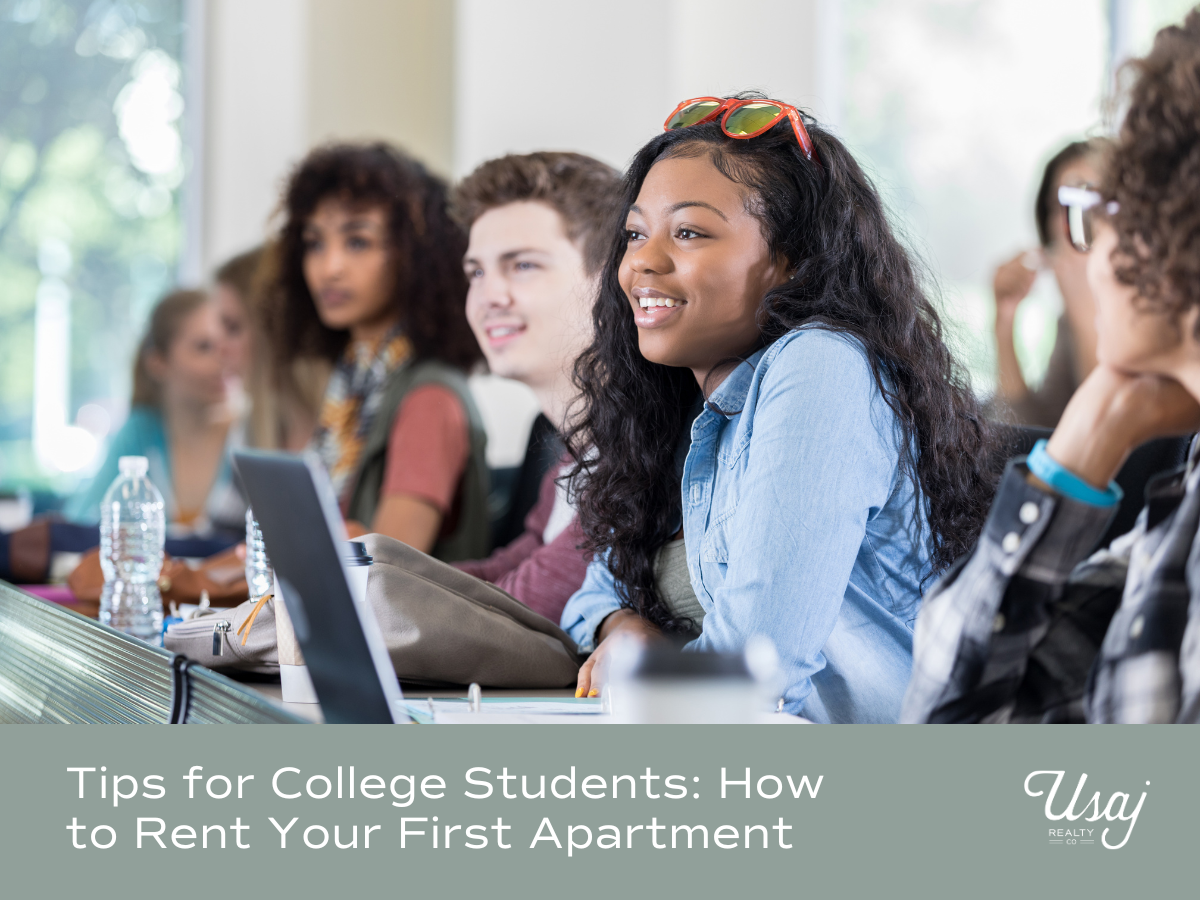Tips for College Students: How to Rent Your First Apartment
College is an exciting time filled with new experiences, challenges, and fun. Whether you stayed home and commuted your first year or you stayed in the dorms, there comes a time in every college student’s life where they branch out to rent their first apartment. At Usaj Realty, we’ve seen it all when it comes to renting, and we put together our favorite tips for college students on how to rent their first apartment.
Start With Your Budget
Awareness around what you can truly afford can make a significant difference when looking to rent your first apartment.
- Take into account your current monthly expenses of food, gas, car maintenance, and school supplies as well as your income.
- If you haven’t already, set aside a savings account or separate checking account to save funds for the first and last deposit on an apartment.
- Calculate what you can afford on a monthly basis for your rent with your current expenses and income.
Narrow a Location
Determining the best location for you and your needs is an essential step.
- While living closer to your school may be ideal, it can also mean increased pricing.
- Mapping out your commute both to your school and place of work can offer greater insight into your ideal neighborhood.
- If you are planning on living with roommates, it’s a good idea to take into account their work commute as well.
Find a Roommate
Oftentimes renting an apartment as a college student can be more expensive than one can afford, which means finding a roommate to share the financial burden may be a great option.
- Living with someone you know and trust is always the best first option.
- If you are sourcing a roommate from your school, there are online resources such as roomster.com, as well as local Facebook groups or even school support.
- Living with more people is often less expensive, but it’s important to do your due diligence when finding a roommate.
- Your compatibility, expectations, and lifestyles heavily influence the success of living together.
Determine Your Must-Haves
Once you have a budget and location in mind, the next step would be to consider your non-negotiables for apartment living.
- Do you prefer laundry in your unit, or a coin laundry machine for the building?
- The required number of bedrooms and bathrooms can narrow your search further.
- Research what each apartment’s earliest move-in date would be to ensure you aren’t going to be left without a place to stay in between moves.
- Your safety should be a priority, so using a tool like crimemapping.com to find the areas that have the least crime can save you stress in the future.
Prepare Your Documentation
Apartment managers often have a checklist of items they use to determine if you would make a good tenant.
- Ensuring your credit score is in a healthy place can mean faster approval for apartments.
- Some apartments require a thorough look into your finances, so knowing where your W2’s, bank statements, and other personal documentation is can save you time.
Read Your Lease
A lease is your contract with your landlord or apartment management company.
- Reading your lease in its entirety helps you stay informed on your apartment building’s rules.
- Ensuring you are comfortable with the elements of the contract before signing keeps you safe.
- Some apartments have cleaning fees, pet fees, and other hidden fees you should be aware of prior to signing.
Ask for Help
If you’re struggling with the idea of renting your first apartment, there is always help. Realtors®, property managers, family members, friends, and even some apartment buildings are great resources to explore your questions and concerns.
Final Thoughts
College students renting their first apartment are traversing unknown territory, and it can be intimidating. Knowing your budget, must-haves, and your desired location can all be beneficial in narrowing your search. Each student is unique, and an ideal apartment may vary between people. Know that you can always ask for help at any time, and at Usaj Realty we have plenty of renting resources to help you get started.




